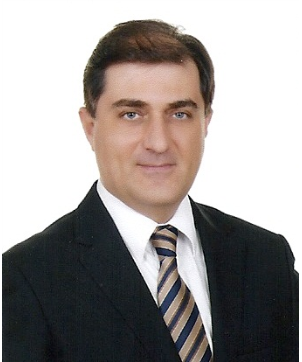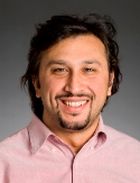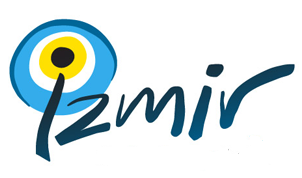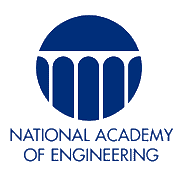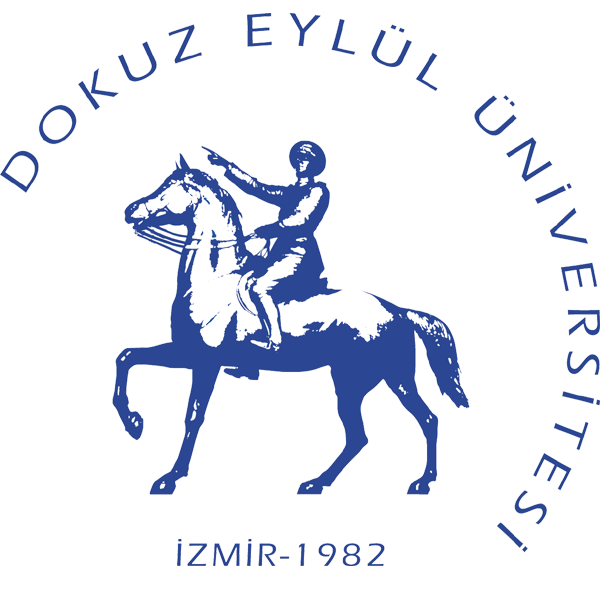
Dr.Colin JH Brenan
|
Dr. Colin J.H. Brenan is a serial life sciences entrepreneur and senior executive with 30 years experience in scientific research, project management, product development, strategic marketing and financing of early-stage life science companies. Dr. Brenan is currently a Founder and Chief Commercial Officer for HiFiBiO BV (www.hifibio.com). Formerly he was Managing Director of the Monsanto-Atlas Seed Fund Alliance at Atlas Venture (Cambridge, USA) where he identified and invested in seed and early-stage life science companies. Prior to Atlas, Dr. Brenan was Director of Strategic Relationships for the Center for Integration of Medicine and Innovative Technology (Boston, MA) where he implemented CIMIT�s innovation strategy with external partners, raised $6M in funding and launched a start-up (Organ Solutions) from the CIMIT Accelerator.
Previous to joining CIMIT, Dr. Brenan was the Founder, Chief Technology Officer and Senior Vice President, Business Development for BioTrove Inc. (Woburn, USA), a life science tools and consumables company spun-out from the Massachusetts Institute of Technology (MIT) and acquired by Life Technologies Inc. (LIFE:NASDAQ); and a Founder of Biocius Inc., a drug development instrument and service provider spun-out from BioTrove and acquired by Agilent Inc. (A:NYSE). At Biotrove, he was responsible for development of the OpenArrayTM and RapidFireTM products, expansion of the intellectual property portfolio from one patent application to 76 issued and pending patents, $8M in strategic sales and was the lead or co-lead in raising $30M of investment capital from corporate and venture capital partners. BioTrove is a MIT TLO Success Story, winner of the 2009 North American Frost & Sullivan Award for Growth Strategy Leadership of the Year and the acquisition of BioTrove by Life Technologies was voted one of the top ten M&A transactions of 2009 by PriceWaterhouseCooper.
Dr. Brenan is the inventor on 17 US and 18 foreign patents, and published +50 peer-reviewed journal articles, book chapters and reports in the fields of bio-microsystems, confocal microscopy, spectroscopic imaging and microsurgical robotics. He has over a decade of experience in consulting for the US National Institutes of Health and is a reviewer for IEEE, IEE, and AIP journals. Dr. Brenan is a Senior Member of the IEEE-EMBS, the Founder and former Chair of the EMBS Boston Chapter (2002-2007), the EMBS Region 1 Representative (2002-2005), the EMBC 2011 co-Chair and is Editor-in-Chief of IEEE PULSE Magazine (2013-present). He received his B.Sc. (Honors Physics), M. Eng. (Electrical), and Ph.D. (Biomedical Engineering) from McGill University (Montreal, Canada) and completed post-doctoral training at MIT (Cambridge, USA).
|
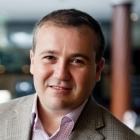
Prof. Utkan Demirci
|
Dr. Utkan Demirci is currently an associate professor at Stanford University School of Medicine, Canary Center Early Cancer Detection. Prior to his Stanford appointment, he was an Associate Professor of Medicine at Brigham and Women's Hospital, Harvard Medical School and at Harvard-MIT Division of Health Sciences and Technology serving at the Division of Biomedical Engineering, Division of Infectious Diseases and Renal Division. He leads a group of 20+ researchers focusing on micro- and nano-scale technologies. He received his B.S. degree in Electrical Engineering in 1999 as a James B. Angell Scholar (summa cum laude) from University of Michigan, Ann Arbor. He received his M.S. degree in 2001 in Electrical Engineering, M.S. degree in Management Science and Engineering in 2005 and Ph.D. in Electrical Engineering in 2005, all from Stanford University.
The Demirci Bio-Acoustic MEMS in Medicine Labs (BAMM) laboratory specializes in applying micro- and nanoscale technologies to problems in medicine at the interface between micro/nanoscale engineering and medicine. We apply innovative technologies to clinical problems. Our major research theme focuses on creating new microfluidic technology platforms targeting broad applications in medicine. In this interdisciplinary space at the convergence of engineering, biology and materials science, our goal is to create novel technologies for disposable point-of-care (POC) diagnostics and monitoring of infectious diseases, cancer and controlling cellular microenvironment in nanoliter droplets for biopreservation and microscale tissue engineering applications. These applications are unified around our expertise to test the limits of cell manipulation by establishing microfluidic platforms to provide solutions to real world problems at the clinic.
Demirci lab creates technologies to manipulate cells in nanoliter volumes to enable solutions for real world problems in medicine including applications in infectious disease diagnostics and monitoring for global health, cancer early detection, cell encapsulation in nanoliter droplets for cryobiology, and bottom-up tissue engineering. His research interests involve applications of microfluidics and acoustics in medicine, especially: microfluidics for inexpensive, disposable CD4 counts and viral load for HIV in resource-constrained settings for global health problems; 3-D bioprinting and tissue models including 3-D cancer and neural cultures. Dr. Demirci has published over 80 peer reviewed publications in journals including PNAS, Nature Materials, Nature Communications, Advanced Materials, Small, Trends in Biotechnology, Chemical Society Reviews and Lab-chip, over 150 conference abstracts and proceedings, 10+ book chapters, and an edited book. His work was highlighted in Wired Magazine, Nature Photonics, Nature Medicine, MIT Technology Review, Reuters Health News, Science Daily, AIP News, BioTechniques, and Biophotonics. His scientific work has been recognized by numerous national and international awards including the NSF Faculty Early Career Development (CAREER) Award (2012), and the IEEE-EMBS Early Career Achievement Award (2012). He was selected as one of the world�s top 35 young innovators under the age of 35 (TR-35) by the MIT Technology Review. In 2004, he led a team that won the Stanford University Entrepreneur�s Challenge Competition and Global Start-up Competition in Singapore. His work has been translated to start-up companies including DxNow Inc. and KOEK Biotechnology.
|
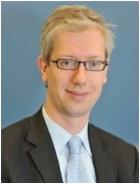
Prof. Henry Hess
|
Prof. Henry Hess is currently an Associate Professor in the Department of Biomedical Engineering at Columbia University. His research interests include nanobiotechnology, biomaterials science, and synthetic biology. A particular focus of his work is the engineering of hybrid nanodevices which integrate biological and synthetic components.
Dr. Hess received a diploma in physics from the Technical University Berlin in 1996, and obtained his Dr rer. nat. (summa cum laude) in experimental physics from the Free University of Berlin in 1999 under the guidance of Ludger Woeste. His postdoctoral studies were conducted from 2000 to 2002 at the Department of Bioengineering, University of Washington, where he also served as a Research Assistant Professor (2002–2005). From 2005 to 2009 he served as an Assistant Professor at the Department of Materials Science and Engineering of the University of Florida. He received the Wolfgang Paul Award of the German Society for Mass Spectrometry (2000), the Feodor Lynen postdoctoral fellowship of the Alexander-von-Humboldt foundation (2000), the Philip Morris Forschungspreis (2005, together with his postdoctoral mentor Viola Vogel), the Distinguished Mentor Award of the UF/HHMI “Science for Life” program (2007), an invitation to the National Academies Keck Futures Initiative “Synthetic Biology” (2009), and was an invited speaker at the US Frontiers of Engineering Meeting 2010.
|
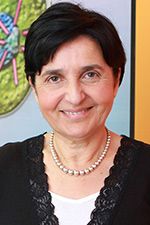
Banu Onaral
|
Prof. Banu Onaral is H. H. Sun Professor of Biomedical Engineering and Electrical Engineering at Drexel University, Philadelphia, PA. She received her BS and MS in Electrical Engineering from Bogazi�i University, Istanbul, Turkey, in 1973 and 1974, respectively, and earned her PhD in Biomedical Engineering from the University of Pennsylvania in 1978. Dr. Onaral joined the faculty of the Department of Electrical and Computer Engineering and the Biomedical Engineering and Science Institute at Drexel University in 1981. Starting in 1995, she led the strategic planning to transform the Biomedical Engineering and Science Institute into a university-level interdisciplinary school. She served as the Founding Director of the School of Biomedical Engineering, Science and Health Systems since its creation in 1997 to 2014. She currently leads the �Global Innovation Partnerships� initiative as Senior Presidential Advisor at Drexel University.
Dr. Onaral's academic focus, both in research and teaching, is centered on information engineering, with special emphasis on complex systems, biomedical signal processing in ultrasound and optics, and functional optical brain imaging. She has led major research and development projects sponsored by the National Science Foundation (NSF), National Institutes of Health (NIH), Office of Naval Research (ONR), Defense Advanced Research Projects Agency (DARPA), Department of Homeland Security (DHS), Federal Aviation Agency (FAA), and the US Marines. She supervised a large number of graduate students to degree completion and has an extensive publication record in biomedical signals and systems.
Dr. Onaral founded several laboratories throughout her career: the most recent is the CONQUER (Cognitive Neuroengineering and Quantitative Experimental Research) CollabOrative, established in Fall 2008 as an interdisciplinary, multi-institutional, and international resource dedicated to the study of brain activation, development, and deployment of functional optical brain imaging technologies in human-system integration and performance, healthcare, mental health, and learning, with research and development partners in the US and overseas, including China, Israel, Italy, Spain, and Turkey.
Dr. Onaral is the recipient of a number of faculty excellence awards, including the 1990 Lindback Distinguished Teaching Award of Drexel University, the EDUCOM Best Educational Software Award and the NSF Faculty Achievement Award. She is a Fellow of the IEEE Engineering in Medicine and Biology Society (EMBS), the American Association for the Advancement of Science (AAAS), and a Founding Fellow of American Institute for Medical and Biological Engineering (AIMBE). She served on the inaugural Board of the AIMBE as publications chair and as Chair of the Academic Council.
Dr. Onaral�s professional services include chair and membership on advisory boards and strategic planning bodies of several universities and funding agencies, including service on the National Science Foundation's Engineering Advisory Board and on the proposal review panels and study sections. Her professional responsibilities have included service on the Editorial Board of journals and the CRC Biomedical Engineering Handbook as Section Editor for Biomedical Signal Analysis.
She served as President of the IEEE Engineering in Medicine and Biology Society (EMBS), the largest member-based biomedical engineering society in the world. Earlier, she had served as Vice-President of Conferences of IEEE-EMBS. She has been active in conference leadership; notably, she organized and chaired the 1990 Annual International Conference of the EMBS and Co-Chaired the 2004 Annual Conference of the Biomedical Engineering Society (BMES).
Dr. Onaral�s translational research efforts for rapid commercialization of biomedical technologies developed at Drexel University and its partner institutions have resulted in the creation of the Translational Research in Biomedical Technologies program. This initiative brings together academic technology developers with entrepreneurs, regional economic development agencies, and local legal, business, and investment communities. Under her leadership, the program has been awarded $10 million from the Wallace H. Coulter Foundation towards the creation of the $20 million Coulter-Drexel Translational Research Partnership Endowment that serves all faculty and researchers at Drexel University. She has participated in the development of the Philadelphia Pediatric Device Consortium (PPDC), sponsored in part by the FDA and led by the Children's Hospital of Philadelphia, Drexel University, and the University of Pennsylvania.
In Turkey, she participated in the strategic planning team charged with the creation of Sabanci University, established in 1998 in Istanbul, Turkey, and served on its Board of Trustees. Sabanci University is top ranked in innovation and entrepreneurship in Turkey. Dr. Onaral also served as the President of the Turkish American Scientists and Scholars Association (TASSA) and is the senior advisor for strategic and global partnerships at Teknopark Istanbul, the $4 billion science, technology, and innovation hub under development in Turkey. Her responsibility areas center on health technologies and human-system integration in aerospace. She also serves as an honorary advisor to several Turkish universities, including her membership on the EBILTEM Technology Transfer Advisory of Ege University, Izmir, the Advisory Board of DEPARK, the Dokuz Eylul University Health Technopark, and the HUNITEK, Hacettepe University Advanced Technology initiative. Dr. Onaral has participated as the US lead or global liaison in regional health innovation initiatives, namely INOVIZ, INOVAnkara, and INOVITA in Izmir, Ankara, and Istanbul, Turkey, respectively. In July 2015, she was recognized as one of the '30 Most Influential Turkish American Women in the USA' by TurkofAmerica.
|
|

Waleed Abdel-Naby
Junior Faculty
|
Waleed Abdel-Naby is a biomedical engineer with extensive experience in developing silk-based biomaterials for regenerative medicine and biomedical applications, and is currently the CEO of Novyx Technologies, LLC. He was born and raised in New York City, where he received his B.S. in Biomedical Engineering from the New York Institute of Technology. Recently, Waleed earned his PhD from Cornell University, where his dissertation research with Dr. Mark Rosenblatt was focused on developing bio-engineered silk based biopolymers for use in reconstruction of the ocular surface, which was awarded the 2013 Clinical and Translational Science Center Novel Technology Team Award from the Weill Cornell Medical College of Cornell University. Excelling in both the academic and laboratory settings has allowed him to earn multiple fellowship awards, including the prestigious NSF Graduate Research Fellowship Program Award during his PhD. Through his research work at Cornell, Waleed has made significant contributions to the development of novel technologies utilizing silk derived biomaterials for regenerative medicine and biomedical applications, and is the inventor on two Cornell University owned patents for the promising silk technology. Realizing the potential translatability of the technology he has developed, Waleed co-founded Novyx Technologies, a company focused on the commercialization of novel silk-based therapeutics for epithelial tissue regeneration and wound repair. Novyx Technologies has recently been awarded several research grants including a grant from the Clinical and Translational Science Center of Weill Cornell Medical College, a grant from the Center for Advanced Technology, and a Phase I STTR award from the NIH.
|




